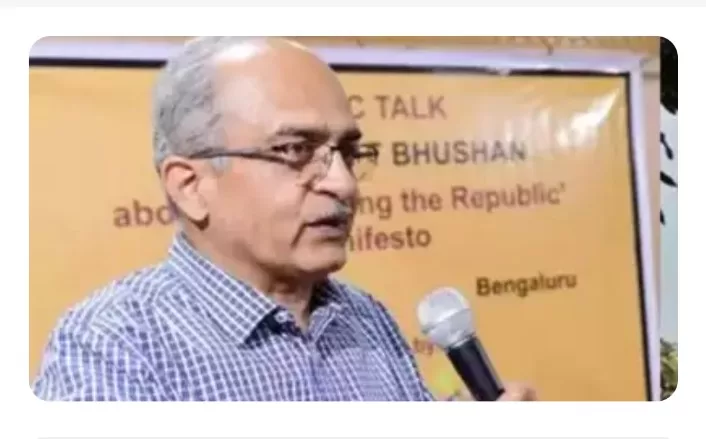New Delhi – Renowned advocate Prashant Bhushan faced intense scrutiny in the Supreme Court today as his assertions regarding the Adani Group came under fire. The court, led by Chief Justice D Y Chandrachud, questioned Bhushan’s credibility, accusing him of selectively citing old reports from the Directorate of Revenue Intelligence (DRI) and suppressing critical information.
Prashant Bhushan, known for his public interest litigations (PILs), had urged the court to order an independent probe based on the Hindenburg report, which alleged misconduct by the Adani Group. However, the court dismantled Bhushan’s arguments, revealing that he had presented outdated DRI inquiries without acknowledging their closure and dismissal by judicial bodies.
Solicitor General Tushar Mehta confronted Bhushan, accusing him of being economical with facts. Mehta clarified that while DRI had initiated inquiries against the Adani Group in 2013, the investigations were closed in 2017, and the decision was upheld by the Supreme Court. The court emphasized that Bhushan’s allegations about money siphoning and stock market manipulation lacked merit.
Bhushan’s claims of a “conflict of interest” against two members of the SC-appointed committee, O P Bhat and Somashekhar Sundaresan, were also dismissed. The court criticized Bhushan for making unsubstantiated allegations, especially considering the considerable time lapse since Sundaresan’s representation of an Adani group company in 2006.
Bhushan’s attempt to substantiate the Hindenburg report with a document from the Organised Crime and Corruption Reporting Project (OCCRP) faced further scrutiny. Mehta revealed links between OCCRP, Bhushan, and the information used in the report. The court questioned the credibility of using such reports as a basis for legal action.
The Supreme Court expressed concern about the trend of circulating information to influence PILs and government policy decisions. It asserted that Bhushan’s client, a law student, lacked the necessary standing in the case. The court criticized Bhushan for using a so-called PIL to seek court directions based on a self-serving report, labeling it a “real conflict of interest.”




